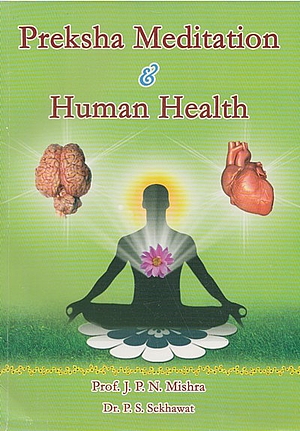The word yoga is etymologically derived from the Verbal root yuj, meaning "to bind together" or "to yoke" and can have many connotations, such as "union", "conjunction of stars" grammatical rule, 'team', 'sum' and so on.
|PYS1/2 (Teeth, Samwat-2064) yoga is the restriction of the whirls of consciousness. | PYS 1/3 (Teeth, Samwat-2064) Then (i.e. when the restriction has been accomplished) the 'seer' (i.e. the transcendental self) appears.
In Yoga-bhashya, the oldest extant commentary on the yoga sutra, Vyasa prefers the equation "yoga is ecstasy". He thus indicates precisely what kind of "yoking" is implied, namely the harnessing of attention, or consciousness, to the point of reaching the ecstatic condition (samadhi) in which the mechanics of the mind are at least temporarily transcendent. In Yoga-Vasistha one of the best texts on yoga, the essence of yoga is beautifully portrayed thus, Manah Prasamanopayah yoga ityabhidhiyate - yoga is called a skilful trick to calm down the mind. It is an upayah, a skilful subtle process and not a brutal, mechanism gross effort to stop the thoughts in the mind (Nagarathna, 2006).
In Mahabharata, the distinguishing mark of yoga is said to be "activity" (Pravritti). This reminds one of the definitions in Bhagavad-Gita. According to which "yoga is skill in action" (yogah karmasu kaushalam). It also defines yoga as "equanimity" (samatva) means 'sameness' or 'evenness' and harmony Essentially it is the attitude of looking dispassionately at life and being unruffled by its ups & downs (Swami Ramsukhdas, samwat 2068).
The word yoga comes from the Sanskrit root "Yuj" which means "to join." Yoga is a science that teaches us the method of joining the individual soul and the Supreme Soul. It is the merging of the individual will with the Cosmic or Universal Will. Yoga is that inhibition of the functions of the mind, which leads to the absolute abidance of the soul in its own real nature of divine glory and divine splendour. It is the process by which the identity of the individual soul and the Over-soul is established by the yogi. In other words, the human soul is brought into conscious communion with God. Yoga is the science of sciences that disentangles the individual soul from the phenomenal world of sense-objects and links with the absolute, whose inherent attributes are Infinite Bliss, Supreme Peace, Infinite Knowledge and unbroken Joy (Fourteen, 2002).
Yoga is that state of Absolute Peace wherein there is neither imagination nor thought. Yoga is control of mind and its modifications. Yoga teaches us how to control the modifications of the mind and attain liberation. It teaches us how to transmute the unregenerate nature and attain the state of Divinity. It is the complete suppression of the tendency of the mind to transform itself into objects, thoughts, etc. yoga kills all sorts of pain, misery and tribulation. It gives you freedom from the round of births and deaths, with its concomitant evils of disease, old age, etc., and bestows upon you all the Divine Powers and final liberation through super-intuitional knowledge. The word yoga is also applicable in its secondary sense to the factors of yoga, viz., self-training, study, the different actions and practices that go to make up yoga as they are conducive to the fulfillment of yoga and as such indirectly lead to emancipation. Union with God is the goal of human life and that ought to become the touchstone of all human endeavours. That is the be-all and end-all of existence.
Equanimity is yoga. Serenity is yoga. Skill in actions is yoga. Control of the senses and the mind is yoga. Anything by which the best and the highest in life can be attained is also yoga. Yoga is thus all- embracing, all-inclusive and universal in its application leading to all-round development of body, mind and soul. The object of yoga is to weaken what are called the five afflictions. The five afflictions are: Ignorance, Egoism, Likes, Dislikes and the instinct of Self-preservation (or clinging to bodily life). Ignorance is the fertile soil, which bears an abundant crop of the rest. On account of ignorance only egoism has manifested. Wherever there is egoism, there invariably exist likes, dislikes and the rest side by side. Clinging to bodily life or fear of death is born of likes only. It is nothing but attachment (Swami Shivananda, 1997).
The Yogic student should first try to weaken these five afflictions. Three practices are prescribed for this purpose. They are: Austerity (Tapas), Study of Scriptures (Svadhyaya) and Resignation to the will of the Lord (Isvara-pranidhana). The practitioner should have intense faith in the efficacy of his practices. Then the energy to carry on with the practices will manifest by itself. Then the real memory will dawn. When there is memory, then there is no difficulty in practicing concentration. If there is concentration, discrimination will dawn. That is the reason why Patanjali says: "Samadhi will come through faith, energy, memory, concentration and discrimination" (Teirth, Samwat-2064).
Therefore, to get success in concentration, meditation and the practice of yoga, we must have tremendous patience, tremendous will and tremendous perseverance. Plunge our-self in concentration. Merge the mind in the one idea of God and God alone. Let the mind fully get absorbed there. Forget other things. Let the whole body, muscles, tissues, nerves, cells and brain be filled with the one idea of God. This is the way to positive success. Great sages and saints have practiced yoga in this way only.
Yoga is a perfect practical system of self-culture. Yoga is an exact science. It aims at the harmonious development of the body, the mind and the soul. Yoga is the turning away of the senses from the objective universe and the concentration of the mind within. Yoga is eternal life in the soul or spirit. Yoga aims at controlling the mind and its modifications. The path of yoga is an inner path whose gateway is your heart (Swami Vishnu, 1999).
The practice of yoga will help to control the emotions and passions and will give power to resist temptations and to remove the disturbing elements form mind. It will enable us to keep a balanced mind always and remove fatigue. It will enable us to hold communion with the Lord and thus attain the summum bonum of existence.
A Guru or preceptor is indispensable for the practice of yoga. The aspirant in the path of yoga should be humble, simple, gentle, refined, tolerant, merciful and kind. If we have a curiosity to get psychic powers, we cannot have success in yoga. Yoga does not consist in sitting cross-legged for six hours or stopping the pulse or beatings of the heart or getting oneself buried underneath the ground for a week or a month (Swami Shivananda, 1997).
 Prof. J.P.N. Mishra
Prof. J.P.N. Mishra
